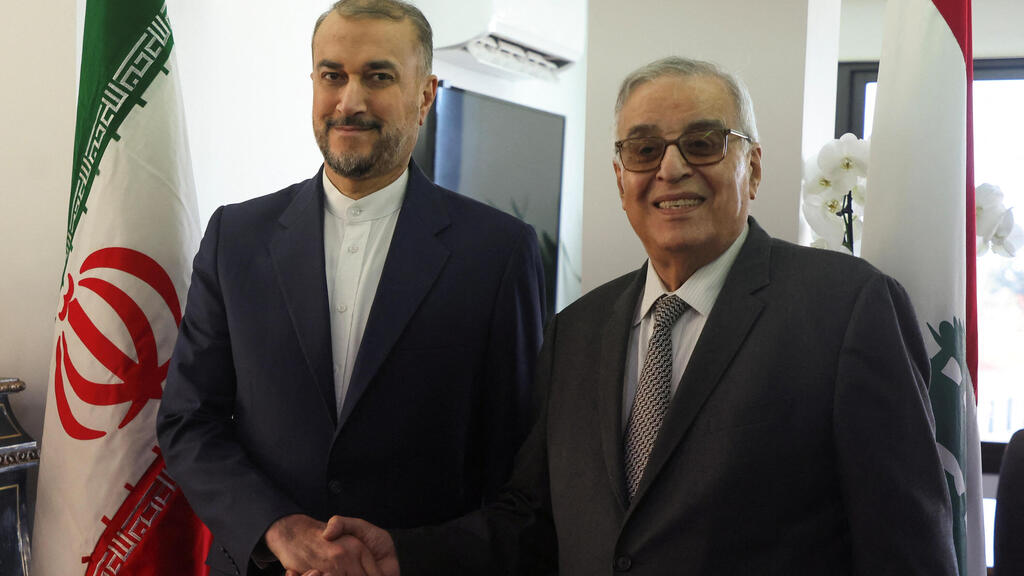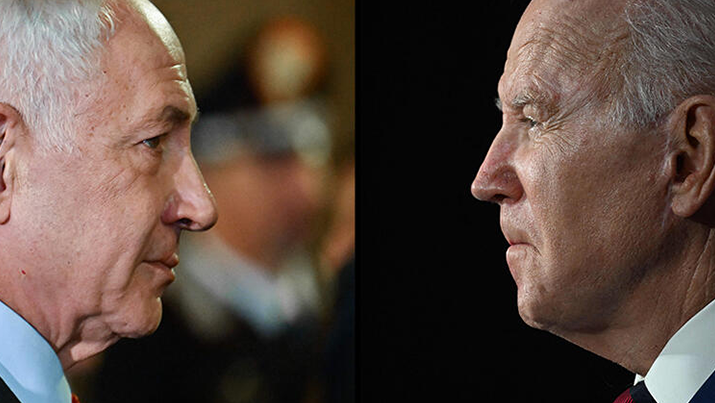Getting your Trinity Audio player ready...
Rather than capitalizing on Israel’s military prowess, as evidenced daily in Gaza and Lebanon, and letting the IDF loose, the Biden administration is energetically trying to control and set limits to Israel’s power.
More stories:
For a president who often cites history as the ultimate authority for guiding his actions—e.g. the U.S. military support for Ukraine—this antithetical position is plainly surprising. Moreover, despite Washington’s best efforts to dress this dichotomy in terms of long-range foreign policy acumen, the cardinal reason is simple—Biden and his colleagues are first and foremost politicians not strategists. Their primary objective right now is to get reelected. And for attaining this goal they are un-swayed if they need to pay in Israeli security currency.
To control Israel, the Biden administration has been working tirelessly to contain the Israel-Hamas war so it does not escalate to a regional conflict. Furthermore, it floated the “day after” phantasm which allows it to hint daily at severe repercussions if the “extremist “ Netanyahu government dares object to Washington’s plans to “bring peace and stability to the Middle East through a two-state solution.”
Accordingly, Jerusalem’s obstinance on the Palestinian issue prevents Israel from reaching the “promised land”— namely normalization of its relations with a host of Arab countries, including Saudi Arabia.
The hammering on the “day after” concept also allows Biden to placate America’s Arab regional friends, not to mention the “progressive” wing of the Democratic Party and the Arab fifth column well entrenched in key U.S. states whose votes would be crucial in the close election contest likely in November.
Undoubtedly, the American plan is also trumpeted so as to provide the left in Israel with new ammunition to argue the Netanyahu government must fall as it imperils relations with Israel’s most important strategic ally just to stay in power by appeasing its “messianic” coalition members.
If on the other hand, the Biden administration had thought strategically it would have recognized first that Israel post-October 7 is not the same country it was dealing with prior to this fateful date. The Israeli public now believes almost unanimously that its decades-old national security policy was based on “concepts” that proved directly responsible for the most acute crisis the country has experienced since its establishment.
What Washington is trying hard to portray as the ideology of an extremist minority is in fact a nation where the vast majority of the populace is convinced beyond doubt that agreement with the Palestinians, especially one involving a two-state solution, is not only unwarranted but potentially suicidal to Israel’s existence.
It is a country where the defense establishment has moved away from relying on deterrence as the cornerstone of its security doctrine to one of an offensive and preemptive strategy based on the realization that "Never Again is Now." Consequently, the IDF is reshaping its entire security concept in terms of force structure, intelligence organization and readiness for war.
Second, the Biden administration would have realized that in the current highly explosive conditions in the Middle East, the last thing it should foster is a belief among Israel’s, and thus America’s, enemies that there is a crisis in relations between the two allies. If such a perception takes hold in Tehran or Moscow, then Washington’s absolute nightmare, namely a regional conflagration, would most certainly become a reality. The Biden administration could find itself immersed in managing, if not directly involved in, a cataclysmic crisis at the worst time—the U.S. elections campaign.
"Anchoring American regional posture on a host of friendly Arab regimes is an inane strategy"
Third, anchoring its regional posture on a host of friendly Arab regimes is an inane strategy. Washington should be alarmed by efforts of key Arab regimes to obscure their strategic ties with America.
For example, Jordanian denials that the three U.S. soldiers killed by an Iranian-backed militia drone attack in late January were deployed on its territory. (Jordanian Minister of Government Communications Muhannad Mubaidin said that the attack targeting U.S. forces near the Syrian border did not occur inside Jordan. Mubaidin told the state-run Al Mamlaka TV on January 28, that the attack targeted the al-Tanf base in southeastern Syria.)
Amman was also quick to deny it participated in a U.S. retaliatory strike against militia targets in Iraq. Jordan’s official news agency Petra quoted a “military source” on February 3, as saying, “The Jordanian Armed Forces respect the sovereignty of brotherly Iraq, [stressing] the depth of the brotherly relations that unite Jordan with all Arab countries."
Similarly, Egypt’s reluctance to take a stance, let alone act, against the Yemeni Houthis’ attacks on commercial shipping in the Red Sea is astounding. Cairo’s position is especially notable given the attacks have resulted in a significant cutback in the naval traffic crossing the Suez Canal and a concomitant slump in income—a catastrophe for the teetering Egyptian economy. (Dollar revenues from Egypt's Suez Canal are down 40% from the beginning of the year compared to 2023, canal authority head Osama Rabie said according to Reuters on January 11, 2024.)
Both examples raise questions about the stability of these regimes given their fearfulness of their seething anti-American populations which they need to constantly placate by touting their Islamic credentials and their anti-imperialist and anti-Zionist positions, sometimes even in direct contravention of their own national security interests.
Fourth, if Biden was thinking strategically, he would have realized that the doctrine of exercising “soft power,” which he was handed down by his mentor Barack Obama and that favored the ability to co-opt rather than coerce and shape the preferences of friends and foes through appeal and attraction, was an unmitigated disaster.
"It is of prime interest to Jihadists to persuade their enemies as well as their adherents that only they are ready to fight to the finish"
Indeed, power is what one is willing to use. This is especially true in the Middle East where jihadism flourishes and its sanctification of martyrdom in the battle against infidels is dominating large segments of the populations. (Three distinct Quranic and hadith themes proved a powerful and volatile combination: the call to war, the call to martyrdom and the martyr's reward. Some branches of Islam, such as the Khariji, declared participation in jihad to be one of the key requirements for all able-bodied male Muslims. Passages in the Quran explain that martyrdom in the cause of God is a means to enter paradise.)
In direct contrast to “traditional” strategic doctrine, the reality in the Middle East points to one inescapable conclusion—potential power upon which deterrence is based with its promise of a guaranteed punishment is a dead concept that has been discredited time and again in the fight against Islamists seeking divine salvation.
Amassing an enormous capability in theater, while evincing day in and out a distinct reluctance to employ it, produces often the opposite result. Jihadists see such disinclination as evidence of timidity, wavering and hesitation. Thus the continued aggressions despite painful punishments by Hamas, Hezbollah and the Yemeni Houthis are based on their convictions that their commitment to the cause will outlast their opponents.
It is of prime interest to jihadists to persuade their enemies, as well as their adherents, that only they are ready to fight to the finish, irrespective of the costs, as their cause is unimpeachable. Even if a truce is somehow reached, it is regarded as a tactic to regroup, rearm and attack again.
Finally, if Biden was thinking strategically, he would have realized he was about to squander a historic opportunity to stabilize the Middle East and materially boost America’s standing in the world.
Indeed, Washington would recognize that by curbing Israel, especially by seeking to prevent an IDF offensive against Hezbollah, Washington is acting in tandem with Iran’s strategic goal of preserving its most important proxy as a deterrent against preempting its nuclear program.
To avoid such a fiasco, the U.S. would first need to stop its efforts to craft a cease-fire in Gaza and let the IDF reach its goal of destroying Hamas militarily, including by going into Rafah. Such an outcome would demonstrate that Israel’s enemies were unable to stop its military and that Jerusalem is essentially undeterrable in its new quest to secure the country’s defenses.
On top of this, the IDF’s high readiness for war against Hezbollah and the backing, in light of October 7, by a decisive majority of the Israeli public (71% by a recent poll) of military action to remove the threat posed by this powerful proxy of the mullahs in Tehran, have changed the Israel-Iran strategic equation.
The world-class combined-arms capability which assured the IDF an astonishingly quick victory in Gaza and the high motivation of its troops, coupled by America’s beefed up military presence in the region, should count as the final elements to enable Washington the pursuit of its national security interests, including ensuring the defense of Israel and the containment of Tehran—most of all make good on Biden’s pledge that Iran will not acquire nuclear weapons.
"Biden squandering opportunity to stabilize the Middle East"
No wonder Iran’s Foreign Minister Hossein Amir-Abdollahian rushed to Beirut and, according to the Lebanese Nidaa Al-Watan on February 15, told Hezbollah Secretary-General Hassan Nasrallah that Tehran shares Washington’s interest in preventing an all-out war, and that “Hezbollah would [therefore] need to continue to absorb the Israeli attacks.”
4 View gallery


Iranian Foreign Minister Hossein Amir-Abdollahian with Lebanese counterpart Abdallah Bou Habib
(Photo: Mohamed Azakir / Reuters)
Similarly, the Washington Post on February 18, cited “officials in the region“ as reporting that Tehran was advising its proxies to avoid provoking a wider war. Accordingly, “They’ve [the Iranians] praised Hezbollah’s sacrifices but cautioned that war with Israel would risk precious gains in the region… One Hezbollah member summarized Tehran’s message: We are not keen on giving Israeli Prime Minister Benjamin Netanyahu any reason to launch a wider war on Lebanon or anywhere else.”
An American undertaking to utilize the new circumstances to install Israel as the Middle East’s undisputed conventional military superpower is within reach currently and could be utilized to secure the Jewish state’s future by neutralizing Iran. Importantly, a recognized Israeli strategic supremacy would also act as a magnet for Arab regimes fearing the mullahs’ subversive designs and who doubt America’s credibility, especially if a Trump administration is voted into office.
 Dr. Avigdor Haselkorn
Dr. Avigdor HaselkornLastly, Israel’s mini-superpower status backed by America would not only help contain the mullahs’ malign schemes and stabilize the Middle East, but cripple the geopolitical push by the newly-emergent Iran-Russia-China-North Korea axis of aggression. The global balance of powers would again tilt in favor of the Western camp just as Ukraine appears to be faltering.
For all of these considerations, Biden’s political aspirations could not justify the squandering of the strategic opportunity his administration has been presented in the aftermath of the Hamas October massacre.
- Dr. Avigdor Haselkorn is a strategic analyst and the author of books, articles and op-eds on national security issues.





